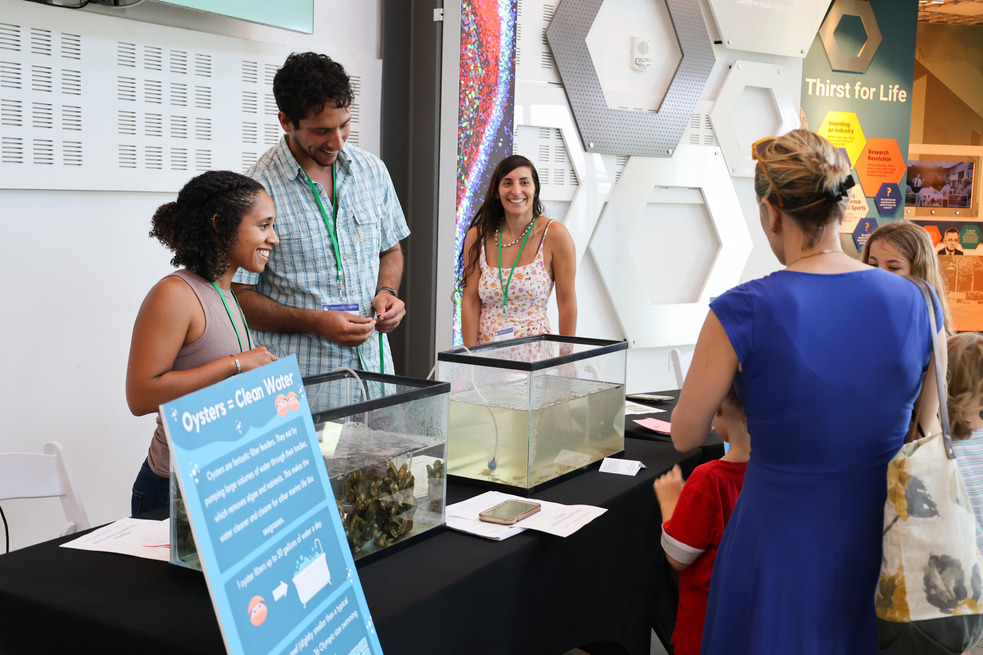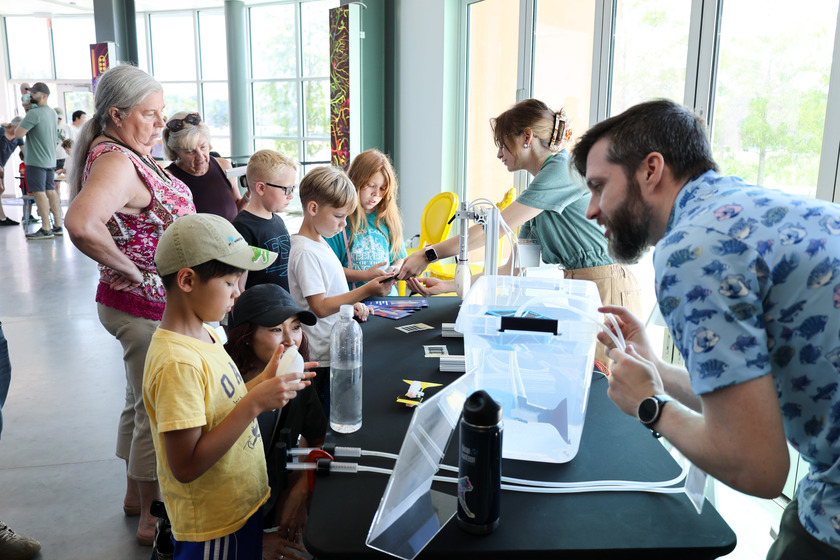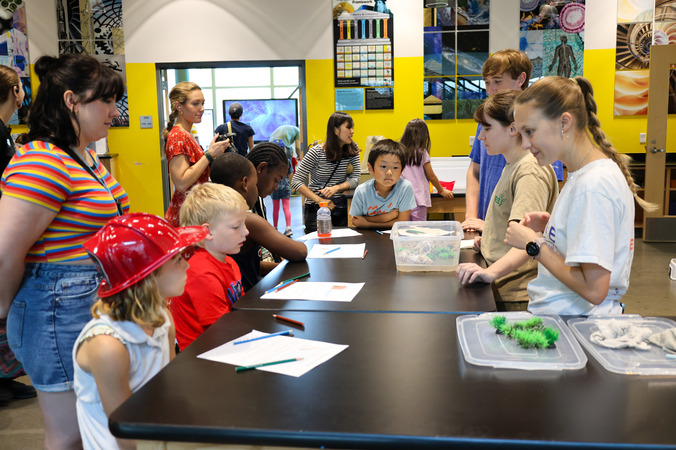Watching oysters “power clean” a tank of muddy water in 30 minutes. Exploring materials used to make oyster gardens that help clean water and boost oyster reef restoration efforts. Building miniature living shorelines to test how they protect coastal areas from storms. These were some of the hands-on activities led by CCS scientists and volunteers to celebrate our blue planet and explore how science can uncover solutions for protecting our waters during World Ocean Day on June 8 at the Cade Museum in Gainesville, which drew more than 650 visitors.

“I love speaking to people about science, especially kids, because they’re so observant and ask some of the most thoughtful questions,” said Britney Hay, a graduate student in the environmental engineering sciences department who talked about the benefits of oyster gardening with museum visitors. “People are aware of the changes that are happening in their environments and the organisms that are affected by those changes, even when they don’t necessarily know the science behind them. Being able to bridge that gap is fulfilling and my favorite part of being in science.”

“It’s rewarding to see the interest sparked when people learn something new,” said Beatriz Marin-Diaz, Ph.D., CCS postdoctoral associate. “Community engagement is important for raising awareness about ocean conservation and inspiring others to protect our natural environment.”
Thank you to Carmen Hurtado and the Cade Museum team for hosting the event, volunteers Anna Ryan-Altieri and Pol Martinez Garcia, and to our participants from UF: Sharon Ryan, CCS associate director; Megan Sam, CCS communications specialist; environmental engineering graduate students Britney Hay and Adam Hymel; Beatriz Marin-Diaz, Ph.D., CCS postdoctoral associate; undergraduate students Mira Cycotte and Jayla Kindelspire; Patrick Musgrave, Ph.D., assistant professor in the University of Florida Mechanical and Aerospace Engineering (MAE) Department; and, MAE Ph.D. student Isabel Hess.

—
By Megan Sam
